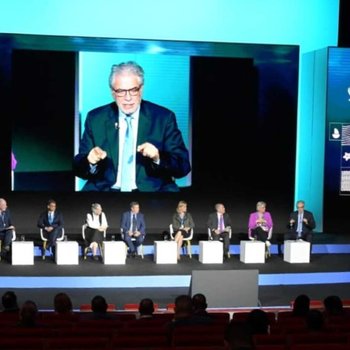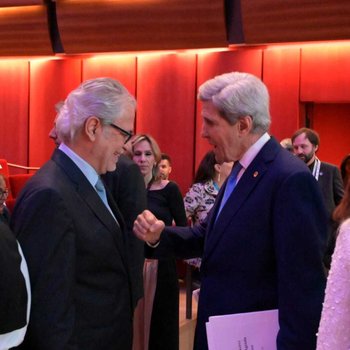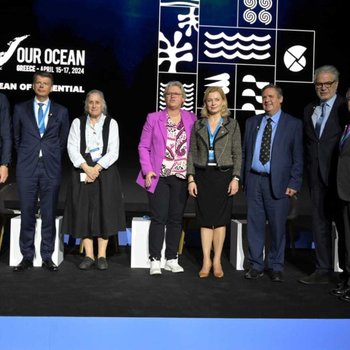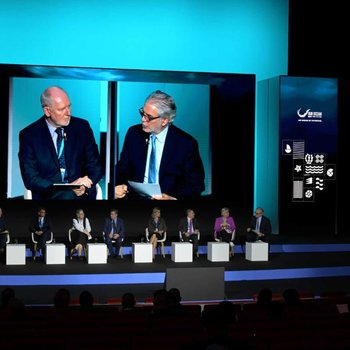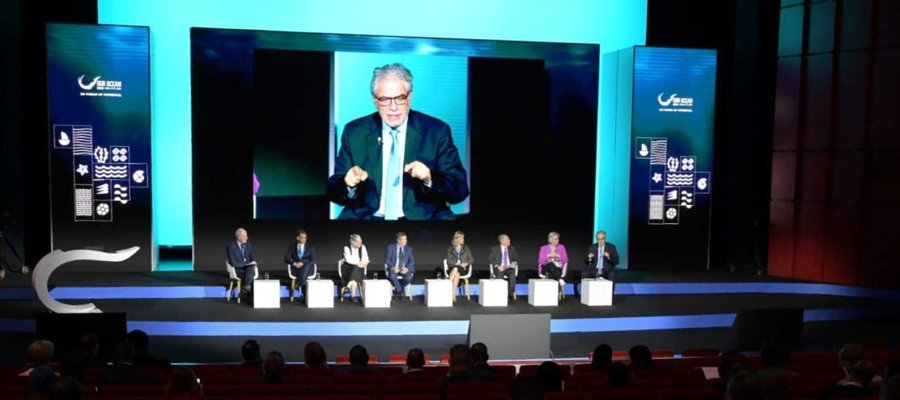
CHECK AGAINST DELIVERY
«Your Excellencies,
Ministers and Secretaries,
U.S. Special Presidential Envoy for Climate,
Ambassadors,
Distinguished Members of the audience,
Ladies and Gentlemen,
Allow me first, to also welcome you all to the 9th “Our Ocean Conference”, proudly hosted by Greece in this beautiful venue.
An important and very timely event, focusing on the importance of our oceans.
Greece, as you all know, has a long-standing and rich maritime heritage.
As Minister of Maritime Affairs and Insular Policy of Greece – proudly representing the largest ship owning nation worldwide – my vision for the seas and oceans, including the Mediterranean Sea surrounding us, is one of harmony between humanity and nature.
Where sustainable development and environmental protection go hand in hand.
I am fully aware of the heavy duty to ensure that the Greek maritime sector does its best to respond and meet the needs of our oceans.
And to guarantee their sustainability.
In this respect, Greece will take the lead both at the EU and at the global level. Within the International Maritime Organization (IMO).
Today, I am pleased to announce officially three key commitments:
- Commitment Number One: Fleet replacement of passenger shipping to reduce the environmental footprint.
- By June 2025, we will have completed a study leading to a strategy for the renewal of the country's passenger ship fleet (which today counts nearly two hundred vessels).
- Commitment Number Two: Use of low-emission ships on public service coastal connections. For example, on the state-subsidized routes.
- Today we are putting together a Public Private Partnership to construct green vessels, which do not rely on fossil fuel.
- It is a long-term project, with horizon of three to four years.
- With an initial budget of eighty (80) million Euros, which can be extended to three hundred and sixty (360) million Euros.
- Commitment Number Three: Installing cold-ironing facilities.
- By 2030, at least twelve (12) ports in Greek islands and on the mainland will be equipped with cold ironing.
- In collaboration with the Ministry of Environment and a budget of five hundred (500) million Euros, we invest heavily on the greening of our ports’ infrastructure.
Furthermore, at the international level, Greece will be participating in the Clean Energy Marine Hubs Initiative.
A partnership platform across the energy-maritime value chain.
We aim to unlock the worldwide production, transportation and use of low-carbon fuels at scale.
Ladies and gentlemen,
Our oceans are essential in combating climate change. Generating income and jobs.
Our oceans and their protection is a collective priority.
In a radical but most importantly, in a realistic way.
This is our duty for the generations to come.
Thank you for your attention».
Question from the moderator: “You recently stated that, in the face of Green Transition, seafarers reskilling and upskilling is critical for their job stability and job security. Why?”
Answer from the Minister: Both reskilling and upskilling are necessary to keep up with the continuous changes that occur on shipping.
Digitalization, the use of greener fuels, new equipment, and new technologies, they all create a new “working environment” on board a vessel.
Maritime industry is required to implement new technologies within specific time limits, set by international organizations.
Therefore, it is mandatory for seafarers’ training to be totally aligned with these new standards.
Competent seamen with “up to date” skills are always in need.
And the need for such qualified personnel will definitely increase in the future.
It is therefore imperative, for maritime education to provide seafarers all the necessary skills for them to be able to adapt to this new working environment.
Both reskilling and upskilling are necessary to keep up with the continuous changes in vessels’ equipment, requirements, and procedures.
And this is of course aligned with job stability and security.

